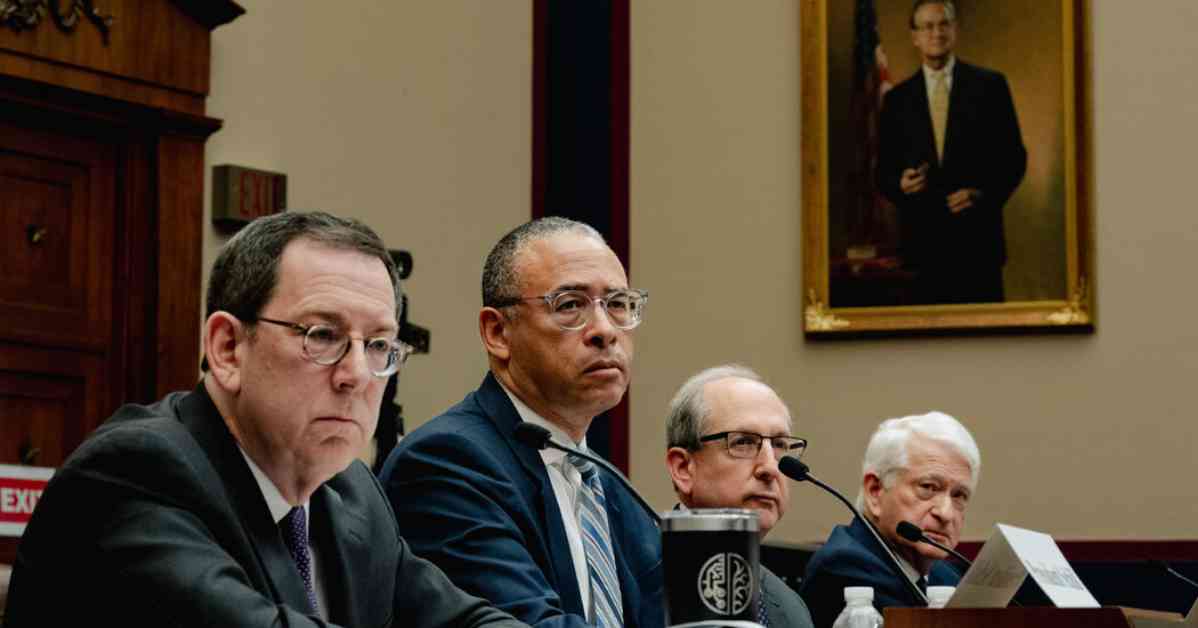House Republicans on Thursday demanded discipline for student protesters at Northwestern, U.C.L.A., and Rutgers, accusing them of violence and chaos. University leaders faced tough questions about the handling of pro-Palestinian encampments on their campuses in response to the Israel-Hamas conflict. The hearing highlighted a clash between lawmakers acting like prosecutors and university presidents seeking to protect both their institutions and their students.
### University Leaders Navigate Minefield
Leaders from Northwestern, U.C.L.A., Rutgers, and the Phi Beta Kappa Society appeared before the House committee, aiming to avoid angering both Republicans and their own constituents. Michael Schill of Northwestern University, Jonathan Holloway of Rutgers University, Frederick Lawrence of Phi Beta Kappa, and Gene D. Block of U.C.L.A. presented a united front in the face of tough questioning.
The Republicans used inflammatory language, accusing protesters of hijacking and causing chaos on campus. They questioned why so few protesters had faced suspension and brandished a document with a failing grade. The university leaders countered with references to due process, appropriate penalties, and the formation of a task force to address the situation.
### Republicans Play Prosecutor
Representative Elise Stefanik of New York led the charge, challenging Michael Schill of Northwestern University. The Republicans sought to elicit yes or no answers from the witnesses, hoping to create a damaging moment akin to past hearings that led to the downfall of university presidents. However, the university leaders remained composed and strategic in their responses, acknowledging missteps while pushing back against accusations of antisemitism.
The hearing underscored the delicate balance university leaders must strike between upholding free speech and maintaining order on campus. The pro-Palestinian encampments served as a flashpoint for tensions between students advocating for their cause and lawmakers demanding discipline.
### Lessons Learned and Promises Made
The university leaders drew lessons from prior hearings, where missteps had led to public backlash. They promised to do more to combat antisemitism on campus while also ensuring that student protesters’ rights were protected. The complexities of balancing free speech with campus safety were on full display during the hearing, as university leaders navigated a minefield of expectations and demands.
The clash between Republicans and university leaders highlighted the broader debate around student activism and the role of universities in shaping political discourse. While the hearing focused on specific incidents related to the Israel-Hamas conflict, it also touched on broader issues of free speech, academic freedom, and the responsibilities of university administrators.
### Moving Forward
As the hearing concluded, it was clear that the debate over student protesters and campus discipline was far from over. The Republicans vowed to continue pressing for accountability, while university leaders pledged to find a balance between maintaining order and upholding the principles of free speech.
The clash between Republicans and university leaders served as a microcosm of the larger tensions playing out on college campuses across the country. As students continue to advocate for their causes and lawmakers demand discipline, the role of universities in shaping political discourse remains a contentious issue.
In the end, the hearing shed light on the challenges facing university leaders in navigating political minefields while also ensuring the safety and well-being of their students. As the debate over student protesters and campus discipline continues, both sides will need to find common ground to address the underlying issues at hand.
